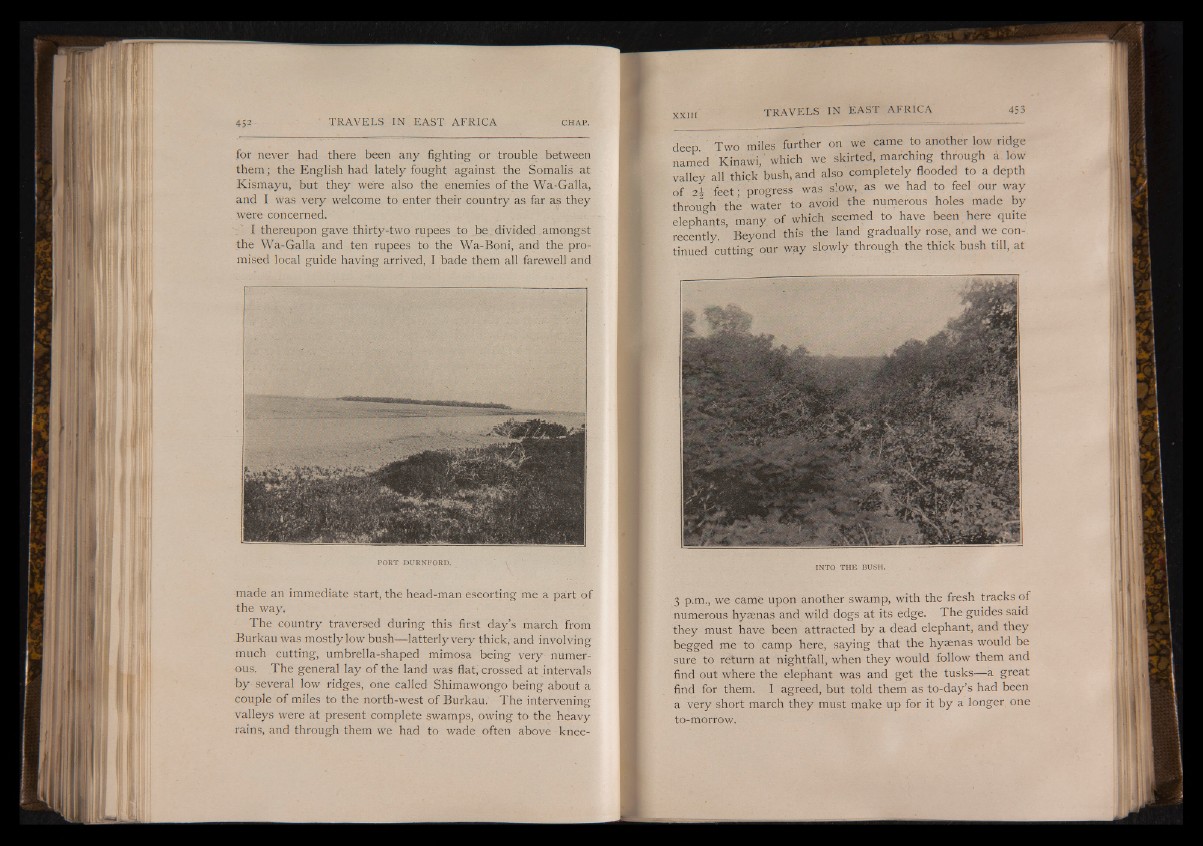
for never had there been any fighting or trouble between
them; the English had lately fought against the Somalis at
Kismayu, but they were also the enemies of the Wa-Galla,
and I was very welcome to enter their country as far as they
were concerned.
I thereupon gave thirty-two rupees to be divided amongst
the Wa-Galla and ten rupees to the Wa-Boni, and the promised
local guide having arrived, I bade them all farewell and
PORT DURNFORD.
made an immediate start, the head-man escorting me a part of
the way.
The country traversed during this first day’s march from
Burkau was mostly low bush— latterly very thick, and involving
much cutting, umbrella-shaped mimosa being very numerous.
The general lay of the land was flat, crossed at intervals
by several low ridges, one called Shimawongo being about a
couple of miles to the north-west of Burkau. The intervening
valleys were at present complete swamps, owing to the heavy
rains, and through them we had to wade often above kneedeep
Two miles further on we came to another low ridge
named Kinawi, 'which we skirted, marching through a low
valley all thick bush, and also completely flooded to a depth
of m feet ; progress was slow, as we had to feel our way
through the water to avoid the numerous holes made by
elephants, many of which seemed to have been here quite
recently. ’ Beyond this the land gradually rose, and we con-,
tinued cutting our way slowly through the thick bush till, at
INTO THE BUSH.
3 p.m., we came upon another swamp, with the fresh tracks of
numerous hyaenas and wild dogs at its edge. The guides said
they must have been attracted by a dead elephant, and they
begged me to camp here, saying that the hyaenas would be
sure to return at nightfall, when they would follow them and
find out where the elephant was and get the tusks— a great
find for them. I agreed, but told them as to-day’s had been
a very short march they must make up for it by a longer one
to-morrow.